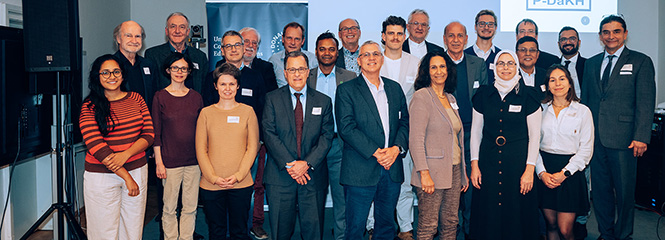On October 18 and 19, leading experts from science and industry will meet at the Complexity Science Hub to discuss how to ensure a resilient supply of phosphorus and how to use it sustainably.
Phosphorus is an essential element for any living organism, and it can’t be substituted by another element. All plants and animals need it to grow, so food can’t be produced without it. Due to this, phosphorus-based fertilizers have become crucial to the global food supply.
“About half of the current world crop production is based on mineral phosphorus fertilization, which makes phosphorus a crucial resource. The system of phosphate production, distribution, and usage is complex, and to improve efficiency it must first be understood in more detail”, says Gerald Steiner, professor at the University for Continuing Education Krems.

INTERDISCIPLINARY
Research on the flow of phosphate requires knowledge from a variety of disciplines. For the analysis of supply security, for example, knowledge from geology has to be combined with methods from environmental sciences, economics, and complex systems science.
“We have to understand the future availability of phosphorus from mines, the production processes for products like fertilizer, as well as the material flows in the environment”, explains Matthias Raddant, a senior researcher at Krems and the Complexity Science Hub.
GLOBAL COLLABORATION
“We aim for a world where food is plentiful for everyone, not just a few. For this, we need better knowledge management and innovative solutions that provide universal access to phosphorus, that care for the environment, for today, and for future generations”, says Joann Whalen, executive director of the Global Phosphorus Institute.
A global network of collaborators has been formed for the initiative. Currently, scientists from Austria, Germany, the US, Brazil, and Israel are contributing to the project, and more partners should join over the next few years.
ENVIRONMENT
“Mineral phosphorus enables the production of half of the global food supply. Even though high ore phosphorus rock is abundant, people are afraid of phosphorus scarcity. There is no scarcity of phosphorus as the increase in prices will make additional deposits economic to mine and future technological as well economic developments will increase available reserves. Yet it is necessary to improve the efficiency of phosphorus use, to reduce losses and thus to reduce negative environmental impacts,” adds Roland Scholz, professor at Krems.
The conference is organized by the Phosphate Data and Knowledge Hub (P-DaKH) in collaboration with the Complexity Science Hub.